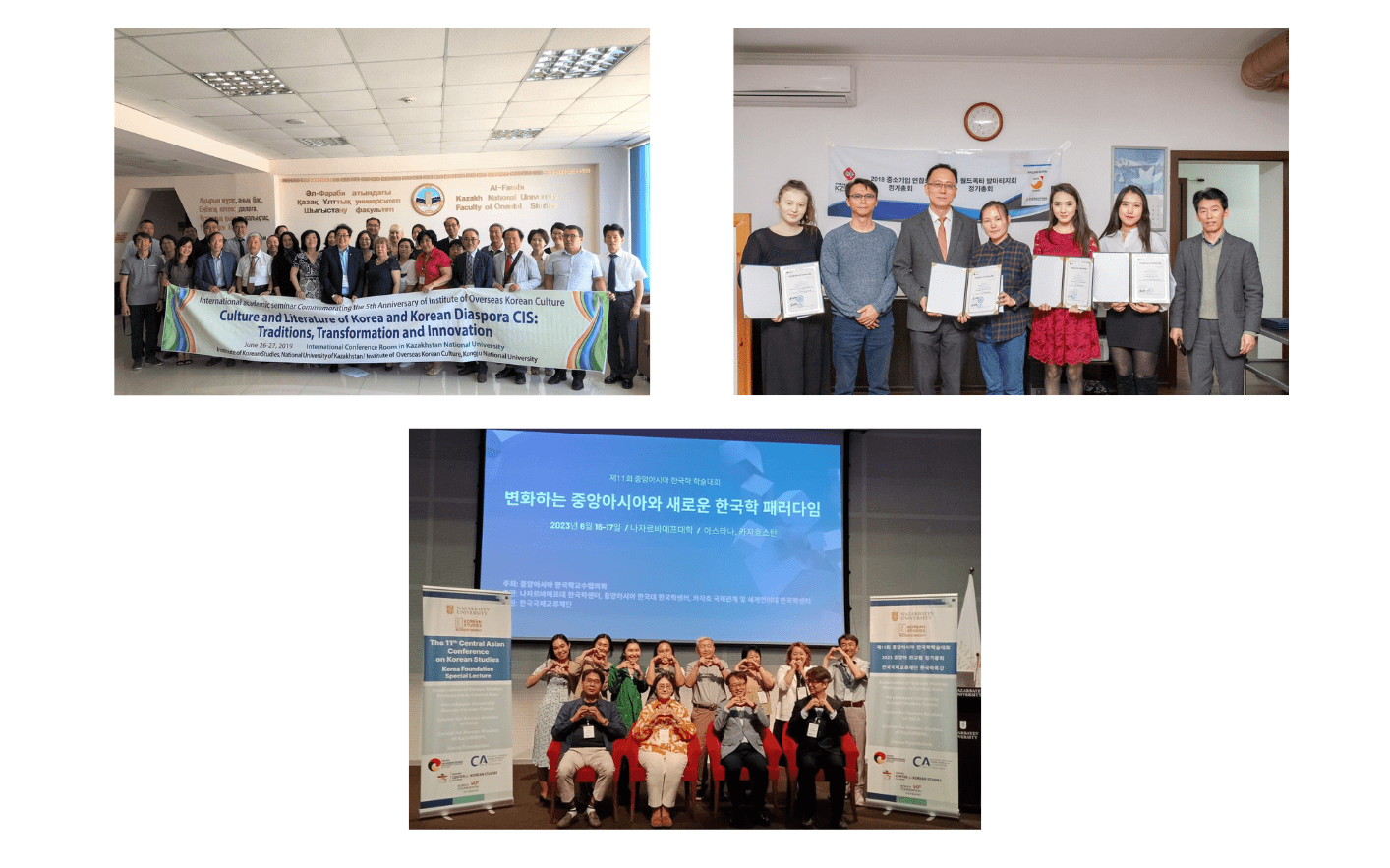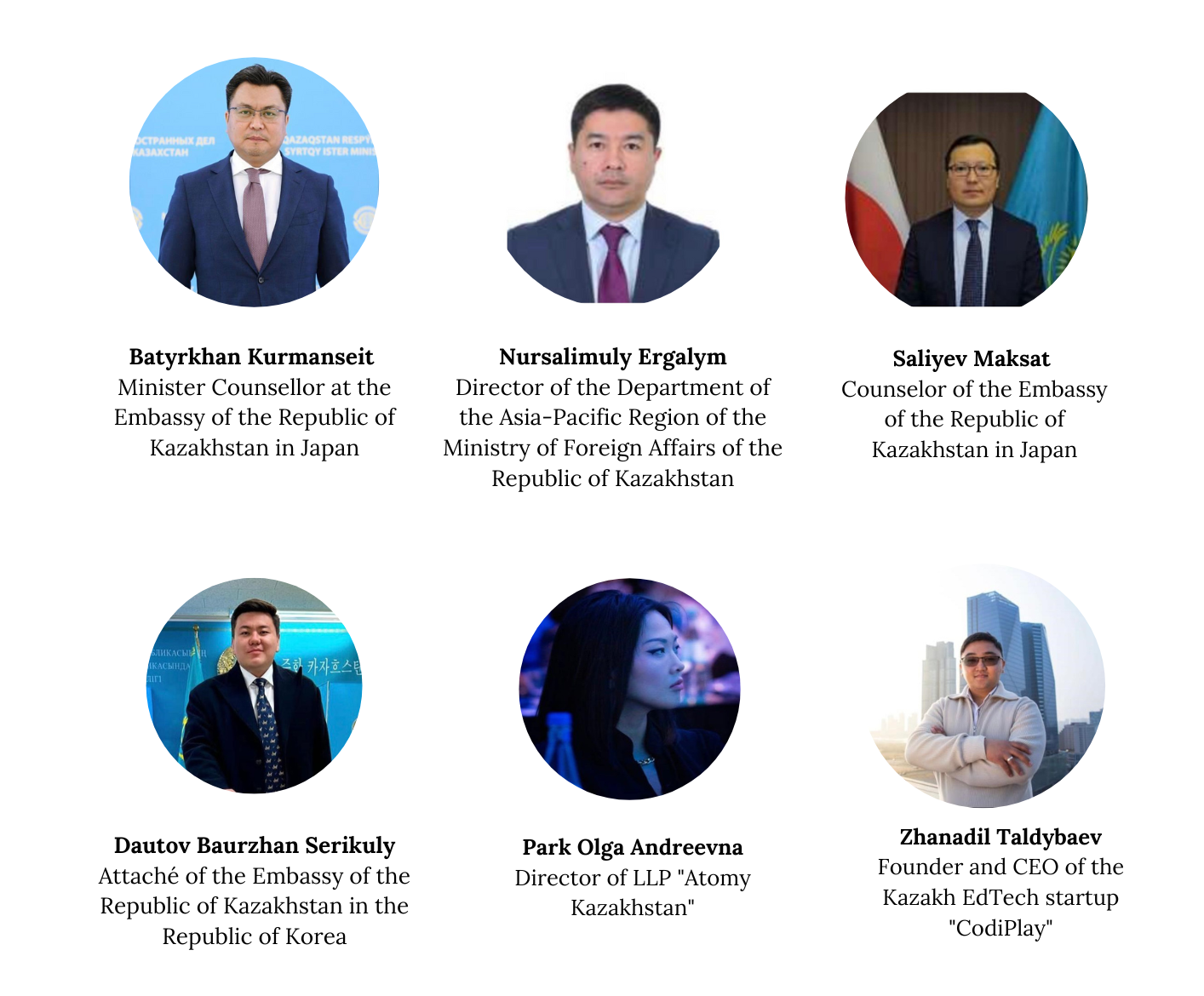Faculty of Oriental Studies
Department of the Far East
Currently the acting head of the Department of the Far East is Abagan Akerke Bolatbekkyzy. The Department of the Far East has existed in the education market for almost three decades. Today, the department employs are experienced professors, candidates of science, associate professors, senior teachers, as well as foreign professors, teachers with diplomas from foreign universities (Dongguk University, Yonsei University, Kyoto University, Nam Seoul University, Seoul National University). The department also includes teachers from partners and employers. The department has proven itself on the positive side, both within the Kazakh education market and within universities and educational organizations in the Republic of Korea and Japan. Today, the Department of the Far East cooperates with a number of universities in Korea and Japan, including Hanyang University, Daegu University, Waseda University, Sungkyunkwan University, Hokkaido University, Hanguk University of Foreign Studies, Tokyo University of Foreign Studies, Busan National University, Saitama University. The presence of such intensive international connections allows the department's teachers to improve their professional level through foreign internships, advanced training courses and participation in seminars conducted by foreign organizations. In addition, every year more than 30 students undergo scientific and educational internships at the partner universities.
Head of the department
Abagan Akerke Bolatbekkyzy
Телефон: 31-05
Электронная почта: Abaganova.akerke@kaznu.kz
Department contacts
History of the department
In 1992, the Department of Japanese Language and Literature was opened at the Department of the Far East of the Faculty of Oriental Studies, which to this day is one of the leading Kazakh centers for the training of highly qualified specialists in Japanese studies. The founders of the department and the first teachers of the Japanese language are Kamaldinov A.A. and Mr. Okawa H. the author of the first "Kazakh-Japanese phrasebook". The first graduates who graduated from this department in 1996 are now teachers of our faculty. The Department of Japanese Studies was one of the young departments of the faculty.In the summer of 2003 As a result of the reorganization of the Department of the Far East countries, consisting of Chinese and Japanese departments, the Department of Japanese Philology was formed, which in 2005 was renamed the Department of Japanese Studies.
From 2008 to 2010 , the head of the Department of Korean Studies was Em Natalia Borisovna, Associate Professor, Candidate of Historical Sciences. During her leadership, the department has proven itself on the positive side, both within the Kazakh education market and within universities and educational organizations in the Republic of Korea. During this period, the department has concluded more than 15 cooperation agreements with leading Korean universities, as well as initiated a dual degree program with Gangnam University.
In 2011, as a result of the restructuring of all departments of Al-Farabi Kazakh National University, the Department of Korean Studies and the Department of Japanese Studies were merged into the Department of Korean Studies and Japanese Studies.From 2011 to 2014, the Department of Korean Studies and Japanese Studies was headed by Candidate of Historical Sciences, Associate Professor Balakaeva Layla Tultaevna. Her field of scientific research included the study of issues of modern historical processes in Asia and Africa.
In accordance with the provisions of the KazNU Development Strategy, changes are being made in the system of personnel formation at our department. These changes are based on the desire to create highly qualified personnel with good potential for training good specialists in accordance with the new education system.
One of the main prospects is to expand the department's international relations with universities and major language centers in Japan through joint training of specialists of different levels, development of language and scientific advanced training courses for teachers and students, participation in various conferences and projects, signing agreements on mutual cooperation with the University of Japan.
In order to increase the level of employment of our students, all opportunities for integration into the international system of education and science will be used.
International relations of the department
The Department of Far East of Al-Farabi Kazakh National University has a wide network of contacts with foreign colleagues in Japan and South Korea. Cooperation is carried out in such areas as: science, education, culture. The department cooperates with the embassies of Japan and South Korea in the Republic of Kazakhstan, the Kazakh-Japanese Center for Human Resource Development, the Korean Cultural Education Center in the Republic of Kazakhstan, more than twenty major South Korean and Japanese universities, as well as the international foundations Japan Foundation, Korea Foundation, other public and scientific organizations, as well as representative offices of the largest Japanese and South Korean companies in the Republic of Kazakhstan. Among the partners of the department: Tokyo University of Foreign Studies, Tsukuba University, Waseda University, Kanazawa University, Hokkaido University, Bunkyo Gakuin University, Osaka University, Sophia University, Hankuk University of Foreign Studies, Busan University of Foreign Studies, Hanyang University, Daejeon University, Gangnam University , Daegu University, Sookmyung University, Dongguk University, Kookmin University, Yonsei University, Sungkyunkwan University.

The department consists of 34 people: 30 teachers of Korean and Japanese languages, 9 teachers of history and literature of Korea and Japan, 2 specialists with higher education. Among the teachers: 1 Doctor of Historical Sciences, 1 Doctor of Political Sciences, 1 Doctor of Philology, 3 professors, 3 acting professors, 2 associate professors, 3 acting associate professors, 6 candidates of sciences (of which 3 are associate professors); 9 candidates of sciences, 31 senior teachers; 5 teachers.
In the 2020-21 academic year, the number of teaching staff of the department according to the staffing table is 30 people.
GRADUATES ARE OUR PRIDE

Grant and foreign projects
Documentation
22 мб, pdf
22 мб, pdf
22 мб, pdf
22 мб, pdf
22 мб, pdf
